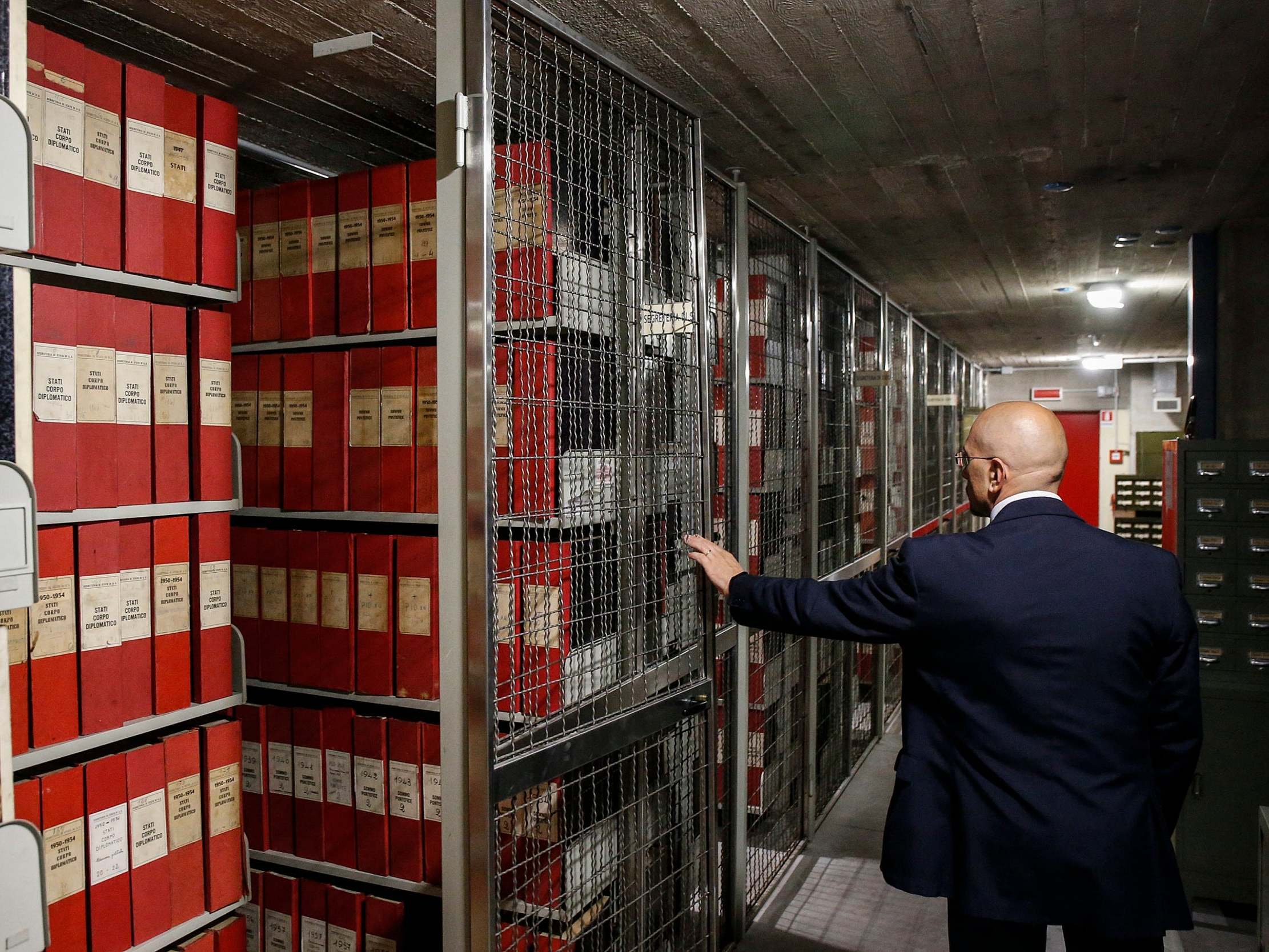Vatican opens secret files on Pope accused of failing to help Jews during Second World War
Papacy of Pius XII to reveal ‘comprehensive understanding’ about man sometimes known as ‘Hitler’s Pope’

The Vatican has opened the Holy See’s archives to shed light on the papacy of Pius XII, whose files were kept secret for decades due to accusations he failed to help save Jews during the Holocaust.
Researchers and scholars will be given the opportunity to examine some two million documents spanning the years 1939 to 1958 to glean insight into Pius XII, who was sometimes labelled “Hitler’s Pope”.
Criticism of Pius XII stemmed from his apparent inaction to help Jews facing persecution by Nazi Germany and failing to forcefully condemn the Holocaust.
However, the Vatican insists the controversial pope was a “great champion of humanity” and was “deeply concerned about the fate of humankind during those terrible years”.
Pope Francis made the decision to open up the archives a year ago to prove the Roman Catholic Church was “not afraid of history”.
Pope Francis gives life advice: in pictures
Show all 10Archbishop Paul Richard Gallagher said ahead of the opening that the archives would offer “a comprehensive understanding of what was going on, the type of person he was, the type of policies that Pius XII was issuing in those very terrible years, especially during the Second World War, and of the period immediately afterwards”.
Ronald S Lauder, president of the World Jewish Congress, said in a statement: “In inviting historians and scholars to publicly access the Vatican’s World War Two archives, Pope Francis is demonstrating a commitment to learning and airing the truth, as well as to the significance of Holocaust memory.
“The World Jewish Congress knows that the Vatican was provided on 17 March 1942, a detailed memorandum by the WJC representative in Geneva, Gerhart Riegner, describing brutal evidence of the Nazi’s plan to liquidate the Jews.
“We never heard what happened to Riegner’s memorandum after the papal representative in Switzerland, Messenger Filippe Bernardini, asked for it. But we do know what happened to the six million Jews killed in the Holocaust.
“With the opening of the archives, we may finally learn the truth about what the Vatican knew,” he added.
Mr Lauder was referring to a detailed document that spoke of the Nazis’ plans to hold masses of Jews in concentration camps and the executions of thousands in Nazi-occupied Poland and parts of Russia.
The document, which was handed over by Riegner and Richard Lichtheim of the Jewish Agency for Palestine, said such measures could “perhaps be rescinded or at least alleviated by the intervention of the Holy See”.
Rabbi Abraham Sorka, who co-authored a book with Pope Francis, wrote in the Vatican newspaper L’Osservatore Romano the opening of the archives would reveal if the Church “could have done something”.
He said: “They should open them and clarify everything. Then it can be seen if they could have done something, to [what] extent it could have been done and if we were wrong in something, we will be able to say: ‘We were wrong in this’.
“We do not have to be afraid of that. The objective has to be the truth. When one starts to hide the truth, one eliminates the Bible,” he added.
Subscribe to Independent Premium to bookmark this article
Want to bookmark your favourite articles and stories to read or reference later? Start your Independent Premium subscription today.

Join our commenting forum
Join thought-provoking conversations, follow other Independent readers and see their replies